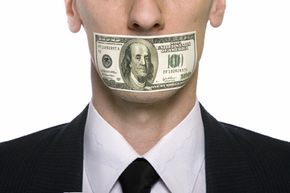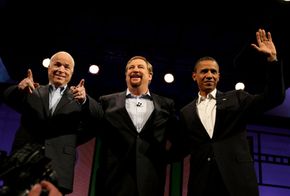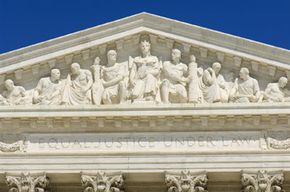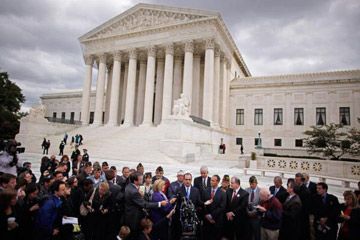Where power goes, corruption sometimes tries to follow. Some people suspect all politicians of being corrupt. Even in democratic societies, some candidates find ways to trade favors to get elected. Reformers have attacked what they believe is the root cause: money.
They say money can't buy love, but it might buy an election. Even squeaky-clean politicians spend a lot of money to get elected. Tour buses, TV commercials and lawn signs cost a pretty penny. United States presidential candidates spend hundreds of millions of dollars on a campaign, and the numbers rise with each election. How much a candidate has -- or can get hold of -- can make or break his chances of winning.
Advertisement
As a result, many people have become concerned with the power that this system can lend to the wealthy. A candidate may promise political favors to people or corporations that contribute to his campaign. To prevent the rich from gaining a corrupt, aristocratic grip over elections, legislators themselves have stepped up and passed laws limiting how people can make financial contributions and how candidates can raise money.
The most famous legislation meant to uproot financial corruption in political campaigns is the Bipartisan Campaign Reform Act of 2002 (BCRA). It restricts campaign funding and advertising. Previously enacted laws limited hard money -- donations to specific candidates. But BCRA banned soft money -- contributions to political parties for get-out-the-vote initiatives and ads that don't explicitly support a candidate. BCRA stopped parties from using soft money toward particular candidates.
Although the move to restrict campaign spending might seem like a perfect antidote to corruption, some contend that this cure will make the U.S. sicker than the disease itself. Both left- and right-leaning organizations find it unconstitutional. Some critics argue that since money is a fundamental avenue to getting the word out, limiting it hampers First Amendment rights. In the spirit of putting our money where our mouth is, let's find out how money can amount to free speech.
Advertisement



